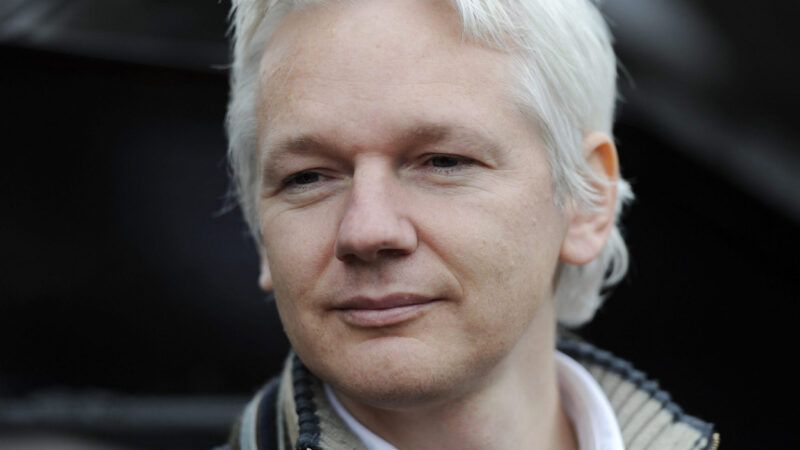Biden Wants To Avoid a First Amendment Showdown Over WikiLeaks
U.S. prosecutors are looking to wriggle out of an espionage trial for WikiLeaks founder Julian Assange.

Federal prosecutors are pursuing a deal to allow WikiLeaks founder Julian Assange to avoid espionage charges and instead plead guilty to the misdemeanor of mishandling classified data. The Wall Street Journal first reported on the talks between U.S. authorities and Assange's lawyers on Wednesday. The independent outlet Consortium News then confirmed that it had learned the same details "off the record" several months ago.
Assange has been detained in Britain for five years awaiting extradition, and the Journal reported that he "would likely be free to leave prison shortly after any deal was concluded" due to time served.
Although it's not a done deal, the proposal is good news for the First Amendment, because it avoids setting a precedent that allows the U.S. government to treat journalists as spies.
Attorney General Merrick Garland still has to sign off on any deal, according to the Journal. And Assange's brother Gabriel Shipton told Consortium News that Assange is dead-set against signing a deal that would require him to come to the United States, due to worries that the U.S. government could change the terms at the last minute.
After the news broke, Assange's lawyer Barry J. Pollack stated, "We have been given no indication that the Department of Justice intends to resolve the case." Pollack didn't deny that negotiations were happening, and accusing the other side of being unserious could be a negotiating tactic.
But both sides have a strong incentive to avoid a trial. In addition to saving Assange from significant jail time, a plea deal could allow the Biden administration to wriggle out of a self-inflicted political conundrum.
WikiLeaks became a thorn in the U.S. government's side in the early 2010s when it published classified data provided by former Army intelligence analyst Chelsea Manning, including a database of U.S. diplomatic cables and a video of a U.S. Army helicopter gunning down a news crew in Iraq.
The Obama administration prosecuted Manning but decided not to prosecute Assange because of the "New York Times problem." Even though WikiLeaks is not a traditional newspaper, its activities are legally not so different from The New York Times and other news organizations, which often publish stories based on leaked classified information.
Indeed, Assange partnered with the Times, The Guardian, and other international outlets for the "Cablegate" leaks. When the Trump administration finally decided to prosecute Assange for espionage in 2019, the Times editorial board called the case a weapon "aimed straight at the heart of the First Amendment."
Because of Assange's case, a bipartisan group in Congress is pushing for a law to overhaul the Espionage Act completely.
With a misdemeanor plea deal, prosecutors could avoid a fight over the Espionage Act and the First Amendment, without looking like the Biden administration backed down. As the Journal put it, putting Assange on trial "would throw a political hot potato into the lap of the Biden administration."


Show Comments (43)